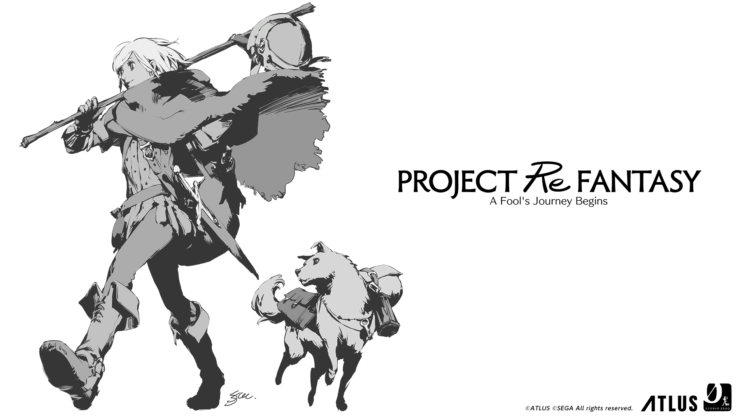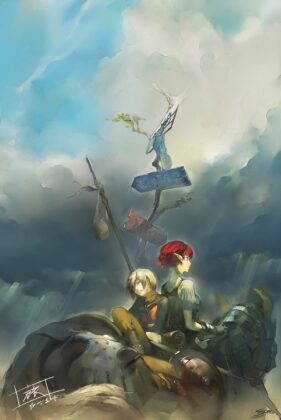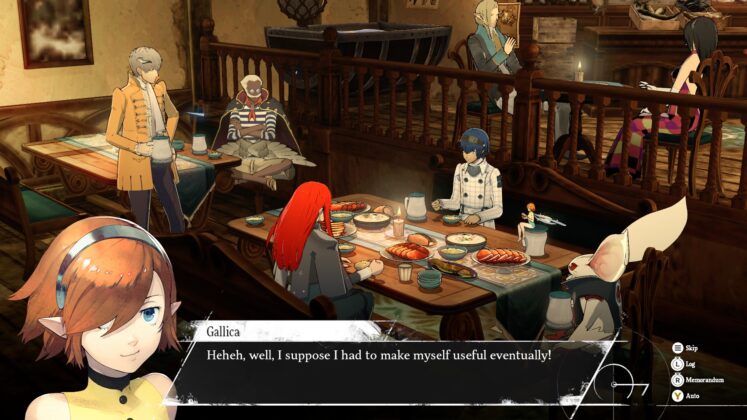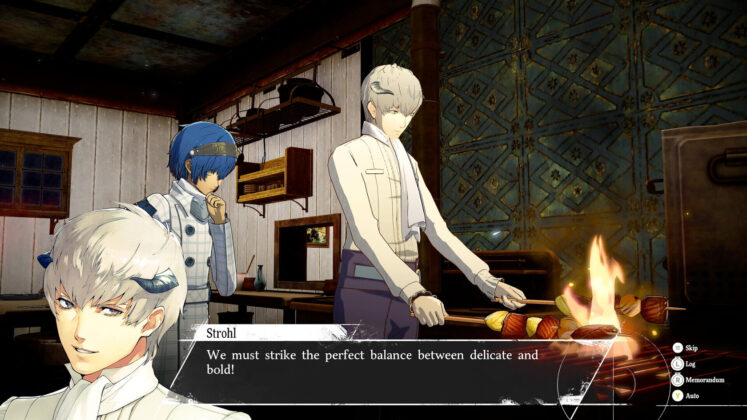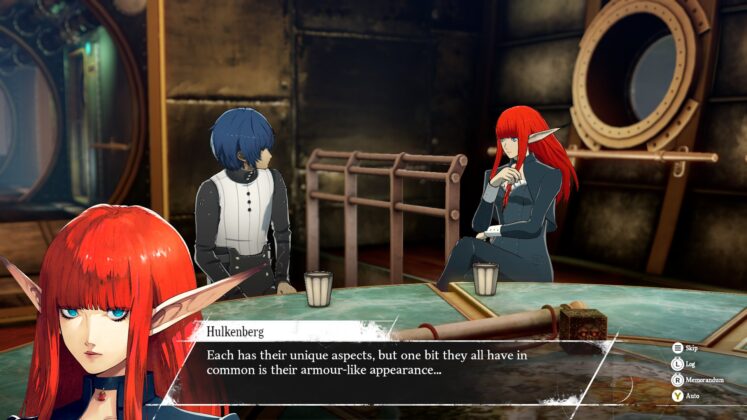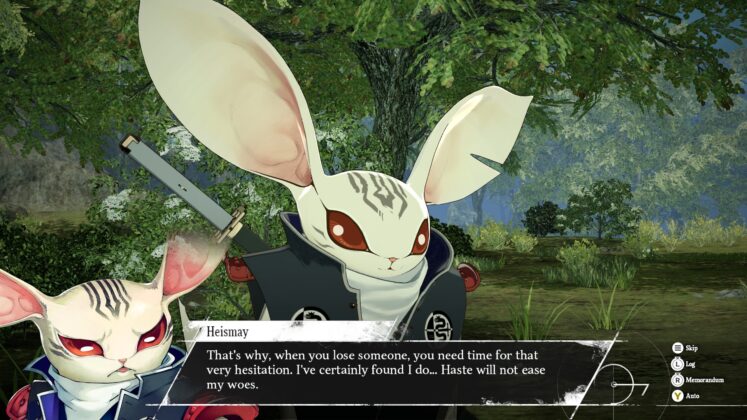Shin Megami Tensei and Persona have been Atlus‘ main IP as a game developer company for many years. While there had not been any new IPs from the company since the release of Catherine on the PS3 back in 2011, the company would still continue releasing games that fall under the umbrella of their already existing IPs, namely Persona 4 Golden and the two Persona 4 Arena games, Devil Survivor 2 on the Nintendo DS alongside the remaster of Devil Survivor on the Nintendo 3DS, Shin Megami Tensei IV and Shin Megami Tensei IV: Apocalypse, and multiple Etrian Odyssey games.
However, that changed when the director and producer of the Persona series up to that time, Katsura Hashino, announced that he would depart from P-Studio (the development studio for Persona) following the release of Persona 5 to move into other projects back in 2016. Later that year, Atlus released a concept video of what they call “PROJECT Re FANTASY“, alongside some concept artworks and the announcement of a new development studio, Studio Zero, with Katsura Hashino as its head.
This was really exciting back in the day, because as I have explained above, it’s been a good while since Atlus had made any new IPs, and as Atlus’ games are for the most part set in an urban setting, them tackling the fantasy genre feels fresh to me. Unfortunately, aside from a video by Yoko Taro cheering on Studio Zero, a new PV in 2017, and little mention in various interviews about how the project has been progressing “little by little”, the project itself had basically been on radio silence ever since. That was until, Atlus revealed a new game by Studio Zero in June 2023’s Xbox Game Showcase: “Metaphor: ReFantazio“, the latest and final version of “PROJECT Re FANTASY” which has been worked on by the team for 8 years ever since its reveal in 2016.
Being a new game with no direct connection to Atlus’ previous titles like Shin Megami Tensei and Persona, the questions are how does it differ from the games that came before, and how does it fare compared to Atlus’ myriad excellent games in their arsenal? For fans of Atlus that have followed the development of this game ever since its reveal, is it worth the long wait?
After playing and immersing myself in the game for roughly 35 hours, I can confidently say that Metaphor: ReFantazio is an amazing performance from Atlus that builds on the games that come before it, while also innovating a lot to make it feels like something new. In a sense, it can be said that this game is a celebration of previous Atlus games that came before it. It got me excited about what they can do with this new IP in the long time and the future of Atlus’ games in general.
A Harsh, Unforgiving World.
The overarching theme of Metaphor: ReFantazio‘s (Metaphor from here onwards for simplicity’s sake) story is inequality. The game is set on the Kingdom of Euchronia (which, if you check Wiktionary, ironically means ‘A time of perfect social, technological, and ecological harmony; a utopian era‘), a kingdom with nine races as its people, with each race having different social standings within the kingdom’s society. Because of this, racism is very prevalent in the kingdom, and you, the protagonist, are a part of the Elda tribe: the race considered as the lowest of the low in the kingdom, ostracized by even the church itself. With the reigning king recently assassinated, and the crown prince, your friend, is in a coma because of a curse, Metaphor follows the story of the protagonist searching for a way to break the prince’s curse while also participating in the kingdom’s magically-driven election, as a way to eventually reinstate the crown prince as the rightful ruler of the Kingdom of Euchronia.
This setup works very well to propel the story forward while also building on the world the developers have created. As the election for the new king progresses, you explore the world of Metaphor and experience firsthand the inequality faced by its people—be it the racism towards different tribes, the inequality between nobles and commoners, to the religious extremism and manipulation by the Church of Sanctism, the state religion of the kingdom. As the protagonist himself is the target of almost everyone’s racism, the themes of this game might feel a little too on your face; everyone whispers about you while you’re walking, and some NPCs outright refuse to talk to you because of your race, the church itself charges you extra for buying healing items, among other things. However, I firmly believe that this is the right way to approach racism in a story—often times being the target of racism does feel very right in your face, and there’s barely anything you can do about it. Putting the player in the shoes of someone in the lowest ranks of society is a really good way to tell a story about inequality, as the player themselves, who may or may not have experienced discrimination in their life before, can gain a different perspective about the topic through the lens of the protagonist.
While there’s quite a lot of fantasy stories that use different races or tribes as an allegory for racism out there, Metaphor inserts a little neat twist to it: the protagonist owns a novel that describes a fantasy world—our reality—and presents it as a perfect utopia where everything is fair and equal. I feel like this is a clever bit of meta-commentary because the player would know that such a perfect world doesn’t exist. After all, we live in it, but the characters in the game don’t. It hooked me instantly with this, I am intrigued about how the characters examine the world they live in and the utopia inside of the book they read, and conclude the ideal world with no inequality they strive for.
Fortunately, Metaphor‘s ensemble cast is the perfect vessel to tell this story and its themes. Coming from different cultural and racial backgrounds, you gradually learn about their beliefs, struggles, and how the current societal problems affect their life. There are times when they bicker because of their differences, and the setting and the stakes of the story do make the main characters feel uptight and serious. However, there are still times when they loosen up a bit for comedic moments in the story, giving them more depth as characters. I especially love Hulkenberg, the lady knight of the group who is usually uptight and devoted to her mission, but also has some moments of weaknesses, and can also be funny with her obsession towards eating anything edible. Gallica, the appointed guide for the party is lovable too, she has this bond with the protagonist and naturally cares about him, but at the same time is very witty and playful with her dialogues.
Next page: Gameplay


